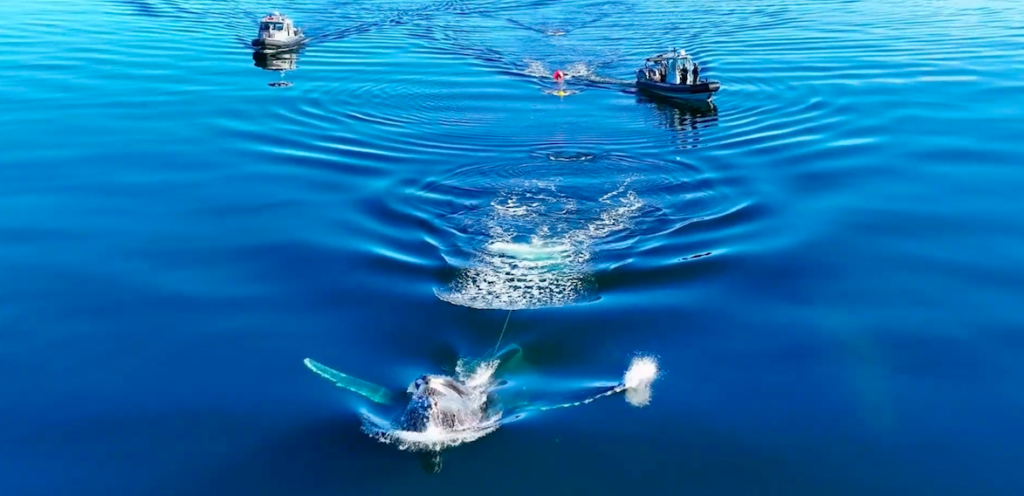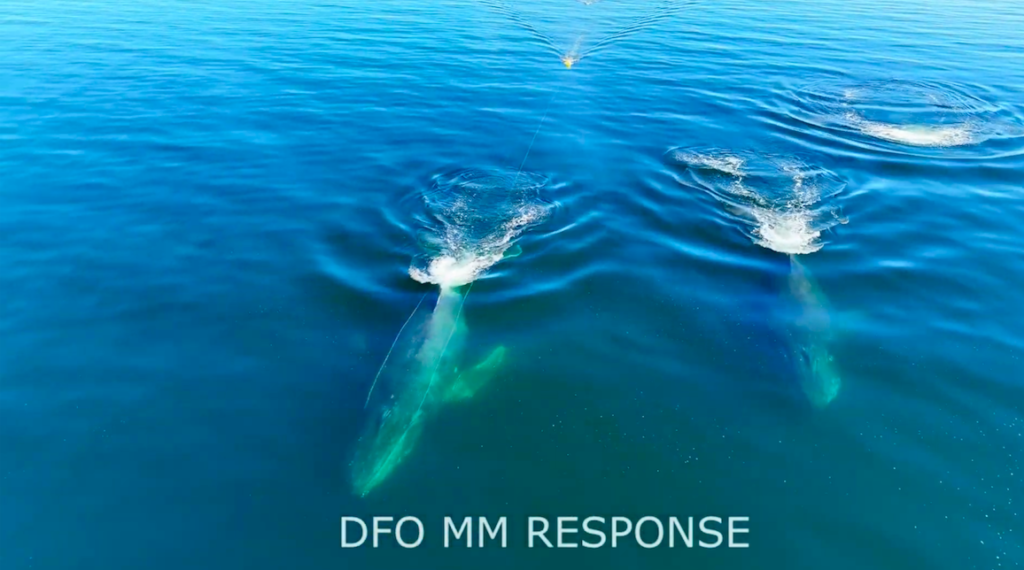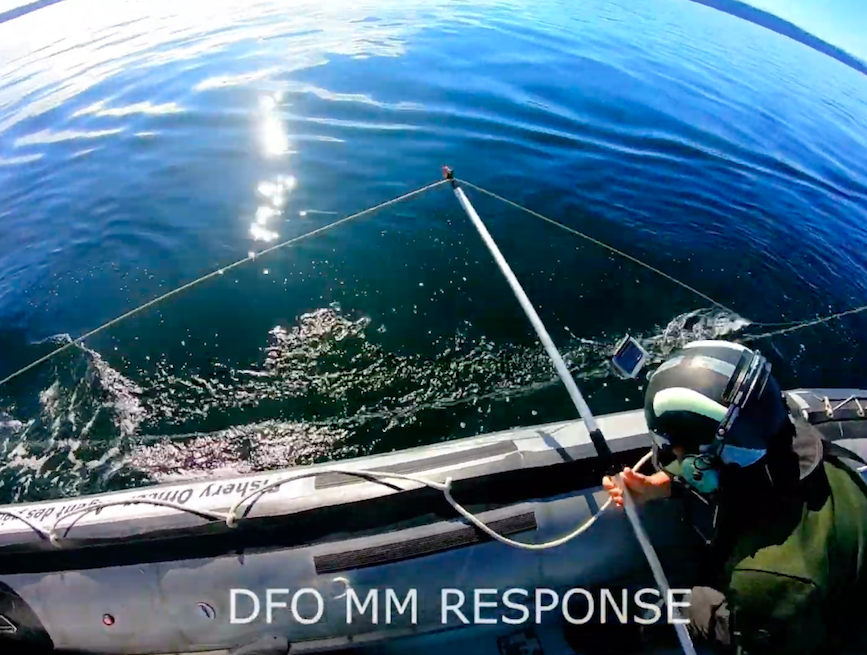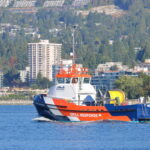The humpback whale was clearly in distress.
It was swimming in the Georgia Strait with a rope stuck in its mouth, towing a large yellow buoy behind it.
Concerned onlookers spotted the whale and reported it to the “marine mammal desk” a 24/7 Canadian Coast Guard initiative set up to monitor “Southern Resident Killer Whales and other cetaceans, such as humpback and grey whales.”
That then spurred a massive joint effort that saved the whale’s life.

The dramatic rescue was led by the RCMP, tug operators, BC Ferry captains, local whale watch companies and local citizens, who together helped track and report the animal’s movement over the next two days.
Finally, near Texada Island, the federal Marine Mammal Rescue team was able to remove the entanglement–believed to be caused by gear from prawn fishing–and let the whale return to its southward migration.

Whales tangled in lost or discarded fishing gear are underreported, says the website of the North Coast Cetacean Society. “Consequences may range from minor to severe injuries and infections, altered hormones and stress levels, decreased calving rates, and death.”
“Debris is a real problem for marine wildlife,” a DFO spokesman told West Coast Now.

DFO asks people to help prevent entanglement “by cutting packing material, banding, rope and other looped material before disposing of it, and by not disposing of these materials in the marine environment.”
Report any marine mammal in distress by calling The Marine Mammal Incident Reporting Hotline at 1-800-465-4336.







